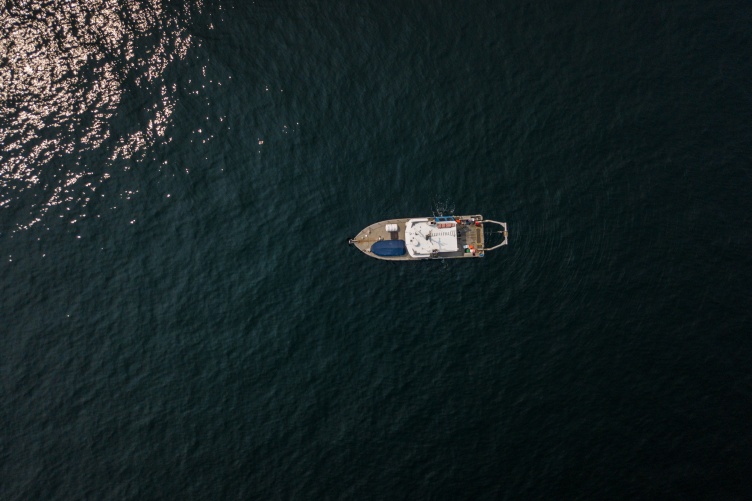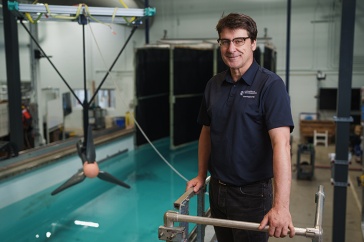
As the oceans warm, fish are on the move in search of cooler waters. This phenomenon, which is happening at different rates and patterns among fish species, is raising questions about what these changes mean for marine ecosystems — and the fishing industry — long term. The National Science Foundation (NSF) has recently awarded UNH's Nathan Furey, assistant professor of biological sciences, and Kathy Mills, research scientist at the Gulf of Maine Research Institute (GMRI), more than half a million dollars to study how warming waters and migrating fish populations are going to affect the diets of fish and ultimately, the health of fish species in the northwest Atlantic Ocean, whose waters are among the fastest warming on the planet.
The scientists are also seeking to predict how the quality of diet for these fish will change, and identify which species are likely to be able to maintain the quality of their diets as waters continue to warm.
“Climate change is affecting our oceans, but we still have little sense of what species may be successful in future conditions,” says Furey, the project’s principal investigator. “It’s important for us to know how our ecosystems are going to be impacted as some species are going to respond better to warming waters than others. Given that the Gulf of Maine provides to our local fishing industry, predicting what characteristics of species make them resilient to warming waters might help our communities adapt.”

Furey and his team will be analyzing datasets dating from the 1970s on fish diets to identify how food habits have changed over time by species. They then plan to use mathematical and statistical models to predict where species might be found in the year 2055 and how that might change which food sources they have access to.
Federal fisheries scientists and managers from the National Marine Fisheries Service’s Northeast Fisheries Science Center (NMFS NEFSC) in Woods Hole, MA will be involved in the research and findings will be shared with them to promote science-based management of fisheries located in the Gulf of Maine and adjacent areas.
“Our local marine ecosystem — the Gulf of Maine — is experiencing dramatic and rapid change, which is going to influence our fisheries moving forward,” says Furey. “This means our waters are an important model for what other marine systems around the globe may experience in the coming decades.”
Along with supporting a doctoral student in Furey’s lab and a postdoctoral scholar at GMRI, the project will include opportunities for multiple undergraduates, including students applying for UNH’s Summer Undergraduate Research Fellowship (SURF) and GMRI’s NSF-funded Research Experience for Undergraduates (REU) program.
“We see this project as a great opportunity to expose our undergraduates to quantitative methods, including programming in R and geographic information systems (GIS),” he says. “And beyond UNH, this project is committed to the education of future scientists. We will integrate our research and findings into the Gulf of Maine Research Institute’s LabVenture program, which serves 10,000 elementary students in Maine annually. We are also partnering with the Seacoast Science Center in New Hampshire to develop and test further educational materials.”
This project is jointly funded by the Biological Oceanography Program and the Established Program to Stimulate Competitive Research (EPSCoR).
-
Written By:
Sarah Schaier | College of Life Sciences and Agriculture
















































